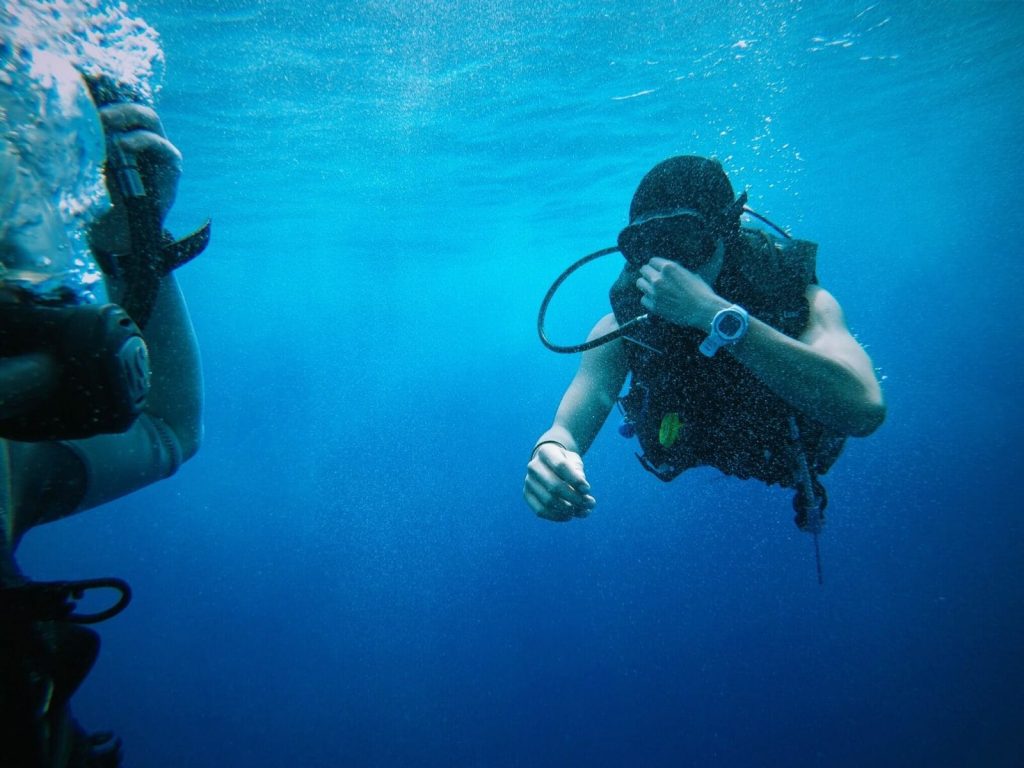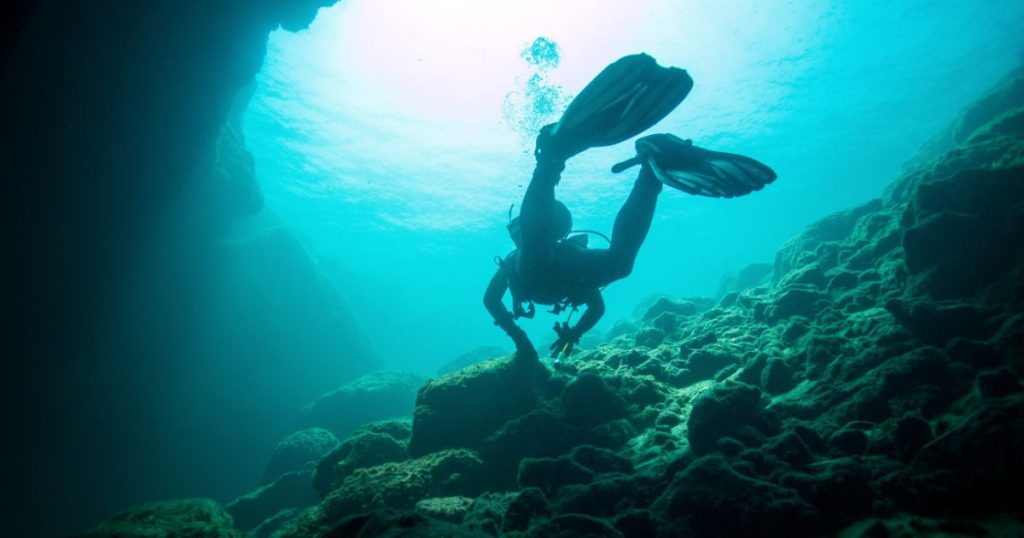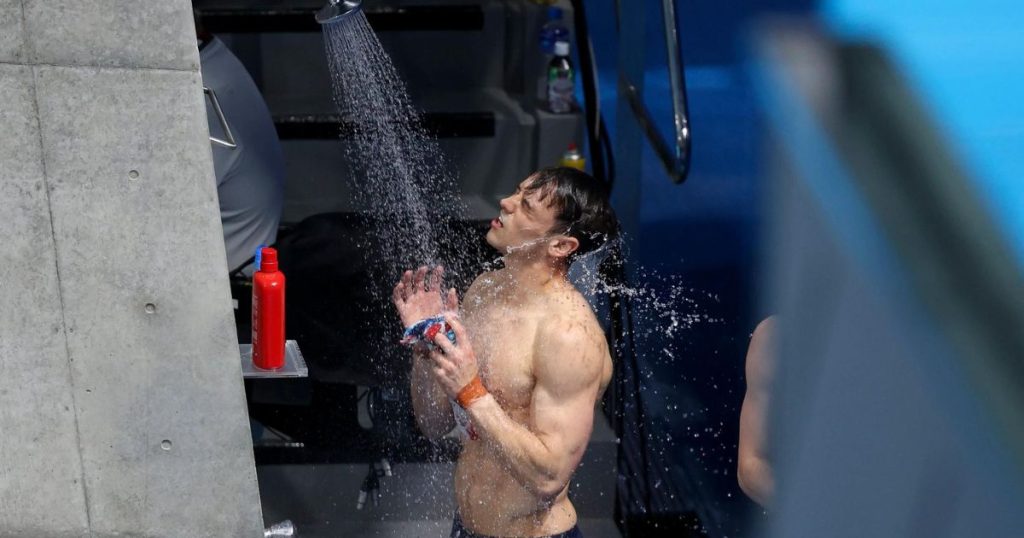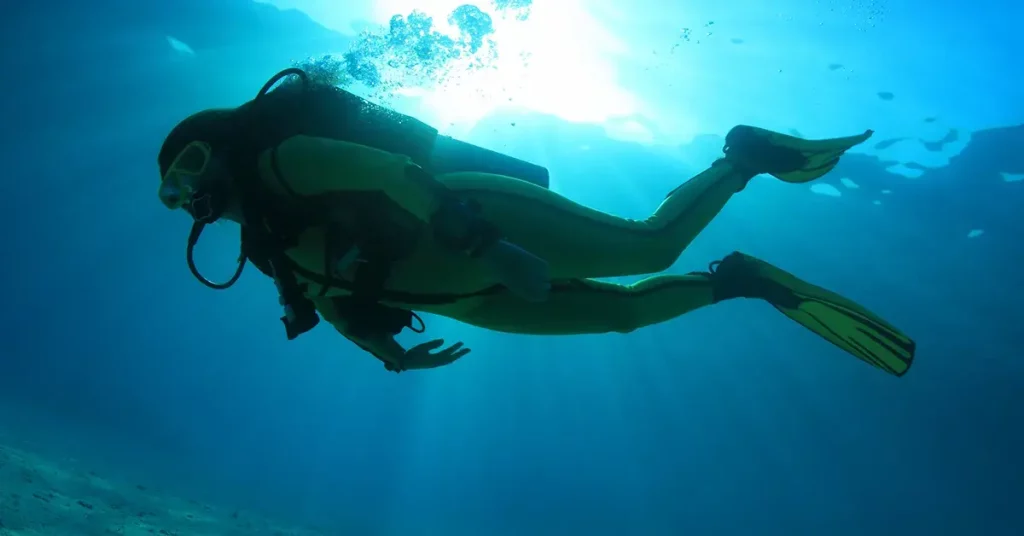What’s the best scuba diving organization – PADI vs NAUI vs SSI? Maybe something else?
If you’re debating which diving organization to become certified with then you’ve most likely come across the confusing alphabet soup that is diving organization acronyms. The good news is that any of these diving organizations is a good option for becoming a certified diver.
Unlike many other sports, scuba diving doesn’t have a single regulating body. As a result, there are more than a hundred scuba diving organizations worldwide. The three most important of these organizations are PADI, NAUI, and SSI.
If you’re just getting into scuba diving, the beginner courses will be pretty much the same across the board. As you progress into more advanced dive training you’ll notice more differences between the various diving schools.
What is the Difference Between PADI, NAUI, and SSI?
It’s important to keep in mind that any of these organizations will provide you with excellent dive training. The choice is largely superficial – at least for beginner recreational divers.
Far more important than picking a particular diving organization is selecting a good dive instructor. A good instructor will make you feel comfortable, explain things in a way you understand and have lots of diving experience. They will also place a priority on diving safety.
Also, consider that all three dive schools may not be available in your area. PADI is the largest and teaches dive training worldwide, SSI is a smaller organization also found internationally, while NAUI is primarily located throughout the US and North America.
PADI (Professional Association of Dive Instructors)
The Professional Association of Dive Instructors is the world’s largest and most well-known scuba diver training organization. There are PADI Dive centers and resorts in over 183 countries and territories.
Over half of the world’s divers have been certified by them – there are over 135,000 PADI professionals who have issued more than 25 million certifications worldwide. You can’t go wrong completing dive training with them.
PADI’s system of diver education is based on progressive training and introduces skills and safety-related information to divers in stages.
Their philosophy is represented by the “4 E Philosophy”:
- Education – Beyond simply learning to scuba dive, PADI helps you expand you’re knowledge of underwater activities and can assist you in turning your hobby into a full-time career.
- Experience – PADI dive shops offer a variety of experiences and help you experience dive sites across the globe in a social environment with other divers that share your interests.
- Equipment – Dive gear makes scuba diving possible. PADI helps you stay up to date with the latest and greatest dive gadgets.
- Environmental Conservation – A healthy respect for the underwater environment should be important to every scuba diver. PADI’s courses place an emphasis on protecting our fragile aquatic resources.
PADI History
PADI was formed in 1966 by two scuba instructors, Ralph Erickson, and John Cronin. They felt that the existing scuba diving agencies were teaching overly complex material and making it difficult for new divers to enter the sport. They wanted to give more people a chance to experience scuba diving by offering relevant, instructionally valid material for divers.
In the early days, PADI’s headquarters were based out of Cronin’s basement. The organization struggled to attract members and by the late 1960s, it had only 400 members.
The organization came up with several innovative practices such as the first diver identification card with the diver’s photograph and the Open Water Diver certification – which included twice as many required open water dives as previous courses.
By the 1980s PADI had grown to become the premier diving organization in the world, which it remains to this day.
NAUI (National Association of Underwater Instructors)
NAUI is the world’s largest non-for-profit dive training organization. Their mission is to “enable people to enjoy underwater activities as safely as possible by providing the highest quality practical education, and to actively promote the preservation and protection of the world’s underwater environments.”
NAUI’s has a global reputation for the highest training standards in the recreational diving industry and is also highly regarded for its technical diver training. Many organizations specifically choose NAUI for their diver training programs including US Navy SEAL teams, Walt Disney World resorts and NASA’s Neutral Buoyancy Laboratory where astronauts train for spacewalks.
The NAUI philosophy is best summed up by six fundamental values:
- Superior Leadership and Instructor Training – Focus on over-learning, learning by doing and maximizing individual potential.
- Trust and Respect – Based on the “loved on” concept. This means NAUI only graduates divers that they would trust to train a loved one.
- Dynamic Growing Body of Knowledge and Skills – An open-minded approach which stresses academic freedom and results in better generations of graduates.
- Democratic Association of Equals – NAUI holds regular elections for its board of directors, with every dive instructor able to cast a vote.
- Academic Freedom – Members are encouraged to explore and discover new ways to help teach each individual student.
- Ever Improving Leadership and Instructor Training – All the above helps contribute to improved leadership, training courses and instructors.
NAUI History
Al Tillman, NAUI’s founder, and the first instructor was the director of sports for Los Angeles County Parks and Recreation in the early 1950s. He established a training program to certify scuba and skin divers sponsored by L.A. County.
Together with Bev Morgan, an L.A. County lifeguard, and Conrad Limbaugh, the trio held the first Underwater Instructor Certification course (1UICC) and created the world’s first civilian diver training organization. The program began issuing provisional certifications to diving instructors across the US.
In the late 1950s, the organization was renamed the National Association of Underwater Instructors (NAUI), that we know today.
Interestingly, renowned oceanic explorer and diver Captain Jacques Cousteau served on NAUI’s first board of directors.
SSI (Scuba Schools International)
Scuba schools international is an organization that provides training and certification in scuba, freediving, swimming, and snorkeling. They’re a highly respected name in the diving world and attribute their success to uncompromising standards and focused methodology. SSI is represented in over 110 countries with over 2,800 international locations.
SSI’s training philosophy is best summed up by the ‘SSI Diver Diamond’:
- Knowledge – Knowledge replaces anxiety with correct information. SSI has a variety of training programs from traditional training to online and home study. The courses will teach you how to apply ‘land value’ – knowledge learned outside the water – to ‘water value’ – the real world application of learned skills.
- Skills – The best way to develop skills is through repetition. SSI’s signature water training method “Comfort through repetition” stresses practice time to properly develop diving skills until they become second nature.
- Equipment – SSI instructors will work closely with you to select the best possible diving equipment for your needs.
- Experience – The only way to get real-life experience as a diver is to go diving! The organization encourages students to participate in more than the minimum required number of dives during training.
SSI History
SSI was founded back in 1970 by scuba and freediving enthusiast Robert Clark. They were the first organization to include full-motion video in their training and pioneered many other areas of diving education.
In 1999 SSI merged with another dive school NASDS (National Association of Scuba Diving Schools) and created a new synergy in the diving world. NASDS brought sales and marketing expertise, while SSI brought their renowned educational products.
Differences in philosophy and training (PADI vs NAUI vs SSI)
All major scuba training organizations follow a similar framework laid out by the WRSTC (World Recreational Scuba Training Council). This means introductory courses will cover essentially the same material.
Differences exist in the training methodologies and philosophy. PADI tends to be the most rigid in terms of flexibility for instructors to personalize training methods. Their training is highly standardized across the globe, so for better or worse you’ll learn the exact same thing at any PADI dive training location. SSI and NAUI give more leeway to instructors and allow them to personalize training with additional information and relevant local knowledge.
In terms of advanced dive training, NAUI is world-renowned for their technical dive training, so if you’re looking to become a professional diver at some point it’s worth taking a look at their advanced courses.
PADI has a wide variety of course offerings, including technical diving, underwater photography and videography, diver propulsion vehicle use and many more. Their courses tend to steer divers into a career track as a dive instructor.
Types of Scuba Certification
There are a huge number of scuba certification courses and levels, from introductory courses all the way to Master Scuba Diver. Explaining every single one would take far too long – beginner divers only need to be familiar with a few.
Although dive training organizations use different names for their courses, entry-level courses will be similar across the board. They offer a mixture of theoretical coursework, confined water dives (typically done in a swimming pool) and open water dives (practical experience).
Some of the most common diving certifications:
Scuba Diver Course
This is the most basic introductory scuba diving course. It’s designed for students who may not have the time to complete the entire Open Water Diver Certification – such as people on vacation. Completing this 2 – 3 day long course will enable you to dive under the supervision of a professional diver up to a maximum depth of 40 feet (12 meters).
Open Water Diver Certification (OWD)
This is the most common dive certification. Completing it will give you all the skills you need to dive unsupervised in open water up to 60 feet deep (18 meters). PADI and SSI call this course Open Water Diver, while NAUI calls the equivalent course NAUI Scuba Diver.
Advanced Open Water Certification (AOWD)
This course is one step up from the Open Water Diver Certification. It requires you to have completed your OWD certification. The minimum number of logged dives required prior to enrollment is 5 for PADI and 24 for SSI.
The focus of this course is dive environment awareness, time management, attention to visual landmarks and deeper diving skills. Successfully completing this course will give you the ability to dive to depths of 100 feet (30 meters).
Rescue Diver
The rescue diver certification focuses on emergency response and diver rescue. Many divers describe this course as the most difficult – and the most rewarding – diving course they’ve ever taken. In order to take this course, you’ll need to complete your Advanced Open Water certification.
The course combines rescue training, emergency management and equipment, accident scenarios and panicked diver response. In order to complete the course, you also need to obtain CPR and First aid training within 24 months prior to enrollment.
The rescue diving course is a prerequisite for more advanced diving courses like Dive Guide, Dive Instructor, and Master Scuba Diver.
How Much Does Scuba Certification Cost?
Prices for open water certification vary depending on where you plan to complete the course. In the US, you can expect to pay somewhere between $350 and $550 for your open water certification. That price should include rental equipment and any required course materials.
If you plan to complete your dive training while on vacation, then you can find some great package deals that include free or greatly discounted rates on accommodations. Some of the best places to get your dive certification while on vacation:
- Koh Tao, Thailand
- Dahab and Sharm El-Sheikh, Egypt
- Utila, Honduras
- Amed, Indonesia
The cost of open water certification in these locations varies from $250 to $350.
Does Scuba Certification Expire?
Scuba certifications do not expire – once you obtain your dive certification you’ve got it for life!
If you haven’t been diving for a few years, it’s a good idea to take a refresher course. This will make sure your skills and knowledge are up to speed and you’ll dive safely. These courses only last a few hours and are well worth the investment.
If you lose your diver certification card you can always obtain a new one from the diving organization that issues it for $25 – $50. Most dive centers will also be able to look up your dive certification online if you happen to lose your certification card while on vacation.
Can You Scuba Dive Without Being Certified?
While it’s not illegal to dive without certification, it’s not a good idea and can lead to injury or even death. Additionally, dive centers and rental locations won’t rent you scuba gear without seeing a dive certification card.
Getting your diving certification will not only teach you about diving safety, but it’ll also give you a better appreciation of the underwater environment and it can be a fun experience!
Hopefully, you now have a better idea about the differences between the various dive training organizations. The next time you overhear divers debate PADI vs NAUI vs SSI – you’ll be able to answer any questions.




